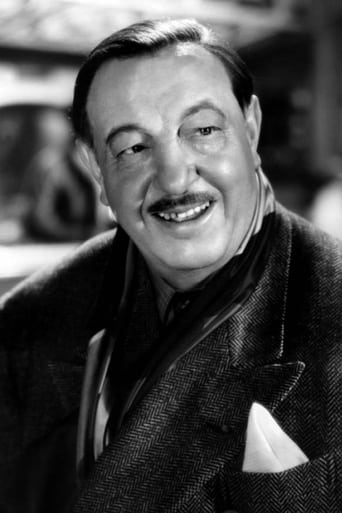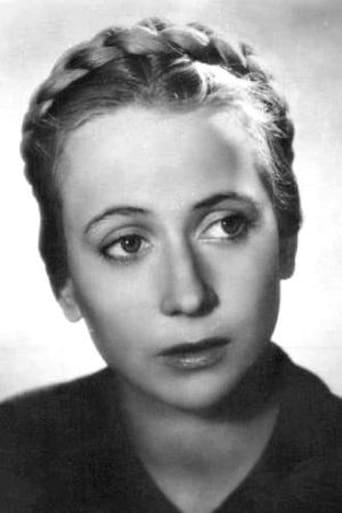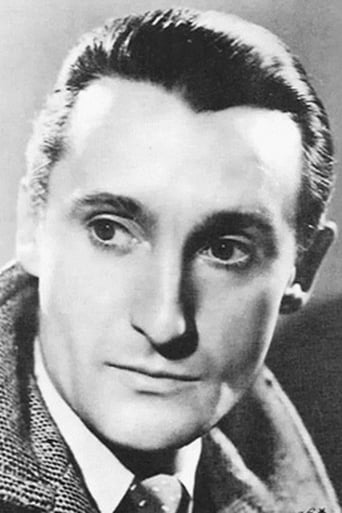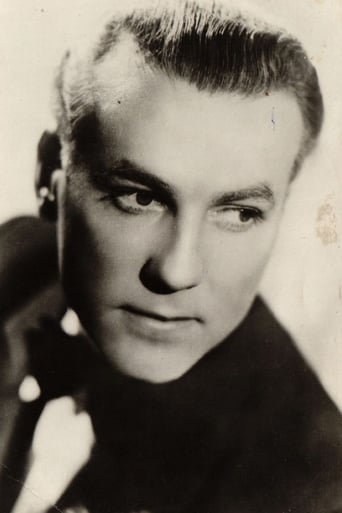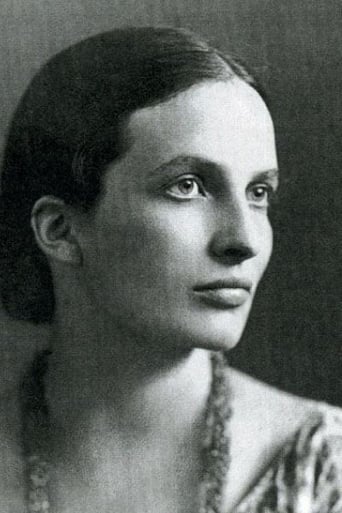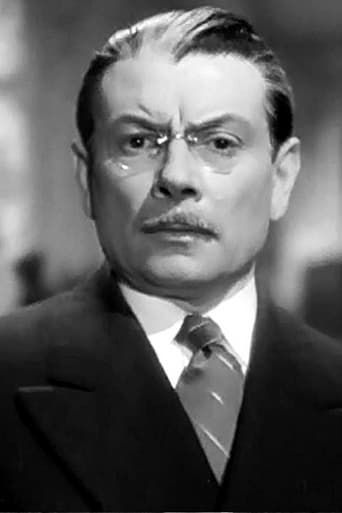Phonearl
Good start, but then it gets ruined
Kidskycom
It's funny watching the elements come together in this complicated scam. On one hand, the set-up isn't quite as complex as it seems, but there's an easy sense of fun in every exchange.
Doomtomylo
a film so unique, intoxicating and bizarre that it not only demands another viewing, but is also forgivable as a satirical comedy where the jokes eventually take the back seat.
Guillelmina
The film's masterful storytelling did its job. The message was clear. No need to overdo.
oOgiandujaOo_and_Eddy_Merckx
"L'assassinat du Père Noël" opens with an act of defiance, the village school teacher Villard announces to the onlooking children that there are two ways to be successful in life, either through one's own hard work ("propre industrie") or the imbecility of others ("l'imbécillité des autres"). This is a slightly bemusing point decades later without the context that the film was released in 1941, during the German Occupation of France. It is one of those breath-taking moments you see in films of the Occupation where someone essentially risks their life to defy the Nazi death cult (another is a sotto voce mocking of the Nazi salute at the end of "L'assassin habite au 21"). Here "imbecility of others" would appear to be referring to the support of the people for the rise of popular fascism. The censors appear to have been too square to notice any of this. There is further poignancy when you realise that one of the stars of the movie, Harry Baur (as Cornusse/Santa Claus), was tortured to death by the Gestapo very shortly after this film was made.The plot is about a snow globe village at Christmas, and you know that given the title of the film, and indeed if you were a cinema-goer at the time, from the movie posters, that Santa Claus or someone dressed as him will be murdered. Who killed him, the Baron who has mysteriously returned after many years, or one of the various "pillars of the community" we are introduced to. It is a noir film for sure, the village in claustrophobic, snowed in, the atmosphere is thick, which bits are as they seem? Is fair foul or foul fair to borrow from Monsieur Shakespeare.It doesn't really matter whodunit, not to me anyway, and so I wasn't bothered by the quick wrap up at the end of the movie. The main theme of the film for me was truth and fantasy. The teacher Villard is a commie and a freethinker, not of the obviously deplorable kind, he has a lukewarm heart as well. But his search for the "truth", who he is the champion for is ridiculed by the events of the movie, although he is a "freethinker" his thoughts are obviously not free enough to realise that Catherine, championing fantasy, is almost completely unmoved by his wooing, and indeed that the reason for this is that they are no match at all. Perhaps the truth is like the white vermouth he habitually orders in the bar, not a particularly palatable drink. Perhaps the primary motivation for exposing the truth, is a deep-seated hatred. However the movie is even-handed, there are perils to fantasy as well, Cornusse and his cockamamie stories, for all their charm, mess with the heads of the children, as you evidenced by the bitter speech of the Baron, who heard them in his turn, and was led by them into misadventures. Catherine at one point talks of wanting a knight in shining armour husband who will kill any other man who looks at her, romantic fantasy can be pathetically cruel.The encirclement of the police near the end of the movie is perhaps a message to the audience to hold tight, the world is coming to save us. There are hints throughout that even greater themes are lying just between the surface of the film, which plays with narrative and explores the nature of narrative (a paradoxical falsity that allows us to believe we have made sense of things) marvellously well. The two old men playing Belote may be our only gods.
vincent-ledoux-2
Although some actors are a little too 'pushy' on the drama side, the camera shots are excellent. Harry Baur is indeed excellent, along with Raymond Rouleau and Fernand Ledoux. While Renée Faure, M-H Dasté and Le Vigan's performance are a little "too much" for my taste and the genre of the movie. The "over-doing" breaks the pace of the movie.The early version of the French Santa Claus (Père Noël) is very charming.Made under German occupied France in 1941, I find this movie remarkably done. Especially considering that the Gestapo tortured Harry Baur to death a couple years later.Astonishingly enough, the children in the movie are performing quite well. The cameo from Bernard Blier is also memorable toward the end.I recommend this movie to all French movie lovers, now available on DVD under the "René Château" label. PAL, Zone 2, if your player can accept it.
writers_reign
This has the dubious distinction of being the first release of the infamous Continental Films and top-billed Harry Baur also has a distinction but one I feel sure he would have been happy to waive, that of being the first major French actor to be tortured to death by the Gestapo within months of shooting this fine movie. Baur was a veteran actor who made his first film in 1909 and was an early - if not actually the 'first' Maigret and he graced many (77 but who's counting) fine French films with his presence. Those who have seen Bertrand Tavernier's masterpiece 'Laissez-Passer' which was set in Paris and specifically featured Continental will take extra pleasure in seeing an actual product of the company (Douce is another that should not be missed). Pere Noel is now available on DVD and I have to say that the quality is excellent. Cynics may question a 'village' in the Savoy Alps that boasts chateaux like the one here in which we half expect to see Errol Flynn duelling with Basil Rathbone such is the scope and magnificence of its great stone-flagged floors with at least one fireplace as big as the White Horse Inn. I tend to agree with the viewer who stated that the plot is flimsy and is far outclassed by the atmosphere, which is terrific though again one may wonder how a globe-maker would make a living in a remote Alpine village. These things to one side the film is a joy and though It is very doubtful whether any of the fine actors - with the exception of Baur and Fernand Ledoux - would have been known outside France even in 1941 let alone today that is one more pleasure to savour, making the acquaintance of actors who were once only names in Reference Books. This is one I'll watch again.
dbdumonteil
Unlike the precedent user,I will not speak of the political background but of Christian-Jaque's intentions.It was obviously intended to match the brilliance of his former work "les disparus de Saint-Agil" (1938),the script of which having been written by Pierre Very too from his two novels.In both works two worlds coexist:the adults on one side,the children on the other."Les disparus de Saint-Agil",which was a small miracle in itself succeeded in perfectly blending the two worlds .In "l'assassinat du père noel' the two sides do not hang very well,the "grown-ups " and the "brats " plots go their separate ways and only a tenuous line desperately tries to connect them:Baur's daughter,dreaming of fair knights and Princes Charming of fairy tales ,an adult who's still a child.The best is the atmosphere:the village surrounded by snow,where they gather for the feast of Xmas ,wrapped in mystery:a strange woman,searching for her cat-she will be searching for almost the entire film- ,a handsome baron who hides one of his hands in a glove (leprosy?),an anticlerical schoolteacher (almost a pleonasm in those years),a shady chemist ,and the gendarmes who cannot ,until the very end reach the isolated place where a Santa Claus has been killed.Besides ,a bedridden child is eagerly waiting for his father Xmas.The movie is mainly worthwhile for its atmosphere;the detective plot is disappointing;the solution is given in about 2 minutes and it's very trite.Some of the yuletide charms are preserved though,and the last pictures finally connects the two stories ,albeit a bit artificially.
